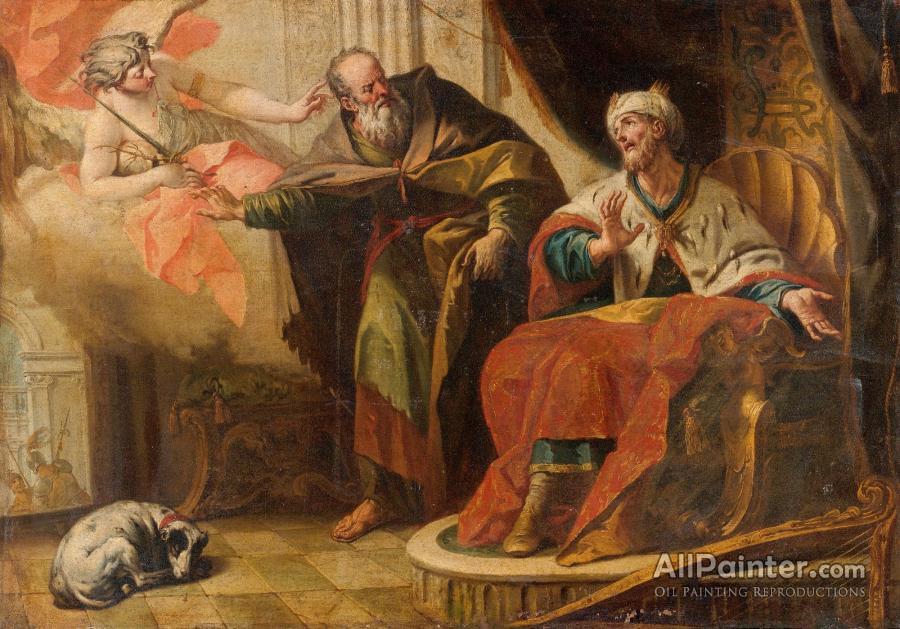The following post is a transcript of an answer to the following questions Tim Staples was asked during a Q&A hour: “I was trying to defend the papacy and came up against a couple of things. First of all, I had heard that Isaiah 22:22 can be used to help understand the keys, and I’m not sure I understand that so well. And as well, I was challenged on if he was also … if Peter was given specifically legislative authority of binding and loosing, then how come a little bit later, it was also given to all of the disciples, if Peter was so special?”
You can watch the live video click here and continue reading the transcribed article below.
Isaiah 22:22 Unlocks the Keys of the Kingdom (Here’s How!)
Yes. Great, great questions, both of them. Here’s the key. As far as Isaiah 22 goes, we need to understand this in the context of our Catholic understanding of typology, right?
So, when you present this to someone, you show them, as you note that Isaiah 22, beginning at verse 15 and going down to verse 22, the context is the prophet approaching Shebna, who is the steward, or steward or the master of the palace. He’s referred to as different things.
This was an office in ancient Israel that’s believed goes all the way back to Joseph, who was made, centuries before, the steward or master of the palace over Pharaoh’s household in Egypt. And so, that office continues in the kingdom of God here.
Anyway, the prophet goes to Shebna, who had been wicked. Now, the steward or the master of the palace possessed the key of the house of David. This was a delegated authority that was given to him by the king so that whatever he opened would
Now, the language used here, as you know, in verse 22, is,
“whatever he opens, none shall shut. Whatever he shuts, none shall open.”
Why? Because he speaks with the authority of the king.
Now, in this particular context, this master of the palace had been wicked, and so the prophet says, “I …” you know, God speaking through the prophet says, “In that day,” in other words, I’m going to, in verse 19,
“I’m going to thrust you from your office. You’ll be cast down from your station.”
Why? Because you are wicked and haughty. All right?
“King David And Ahiphotel” by Gaspare Diziani
The House of David
And he says,
“I will call my servant, Eliakim, the son of Hilkiah, and I will clothe him with your robe.”
This is providential, of course, because notice there’s a succession here. When one master of the palace goes away, there is a succession that’s there just for us Catholics, folks, right? Right? He says, “I will call my servant, Eliakim, the son of Hilkiah. I will clothe him with your robe. I will bind your girdle on him. I will commit your authority to his hand. He shall be a father …” very important there, “a father.”
What do we call the pope? Papa, right? That’s where papacy or pope comes from, Papa.
“He will be a father to the inhabitants of Jerusalem, and to the house of Judah,”
which, of course, is a prophetic statement, because Isaiah is speaking at a time when the house of Judah had already collapsed.
He’s speaking in the context of the northern tribes. This is 700, roughly, B.C., and so this is a prophetic utterance here. “He’s going to be a father over the inhabitants of Jerusalem and Judah.” All right? Prophecy, the entirety of the people of God.
“I will place on his shoulder the key of the house of David. He shall open, none shall shut. He shall shut, none shall open.”
This is extremely important, because if you go to Revelation 3:7, you discover Jesus saying,
“I am he who has the key of the house of David, who will shut and none shall open, open, and none shall shut.”
He attributes that to himself.
Now, some people will say, “Well, wait a minute. I thought the pope was supposed to have the keys. Now, if Jesus says he has the key …” Well, of course he does. See, and a lot of folks miss this. It’s not as though Eliakim, after Shebna, he has the key, and so, “Oh, sorry, king, you don’t have any authority anymore. You gave me the key, pal.” No. This is a symbol of authority.
“Delivery of the Keys” by Perugino
“I have the keys…”
Of course, the key belongs to the king. The king possesses the fullness of authority over the kingdom, but it’s a delegated authority.
In the same way, of course, Jesus has the key, and in fact, some get hung up on, “Well, it says, ‘key’, but it’s plural.
‘I will give to you the keys,’
in Matthew 16.
What’s up with that? Well, go to Revelation 1:18. Jesus also says,
“I have the keys of death and Hades,”
right?
So, he says, “I have the keys,” “I have the key,” fulfilling Isaiah as well as fulfilling what it is he communicated to Saint Peter. He communicated the key, the keys, to Saint Peter, in a unique way.
Who Exactly has the Authority of Binding and Loosing?
Now, to get to the second part of your question, this is extremely important, okay?
He communicates the keys to Peter alone.
No one else receives the keys. Now, he mentions this second authority,
“and whatever you bind on earth shall be bound in heaven, whatever you loose on earth shall be loosed in heaven,”
that Peter possesses as well. But the key is only Peter.
Now we go to Matthew 18:18, and Jesus speaking to all the apostles, says, “I will give to you,” now it’s plural, whereas Matthew 16, 18, and 19, it was singular, now it’s plural, “I will give to you,” that is y’all, we would say in Virginia, “this authority, whatever you,” you all, “bind on earth shall be bound in heaven.”
Well, the point we need to make here is that,
this authority of binding and loosing is given to all the Apostles with Peter.
And that’s extremely important, because Peter alone is given a unique authority of the keys, indicating that Peter can act alone, as one man apart from the consensus of the others. As Vatican I defined in 1870, one man apart from the consensus of the others.
He doesn’t have to take a vote. He doesn’t have to stick his finger in the air and see which way the wind is blowing. He has a unique authority.
Archbishop Karol Wojtyla (Pope St. John Paul II) being made cardinal by Pope Paul VI.
Apostolic Succession
But the apostles and their successors, the bishops, have a collective authority. We refer to this as the college of the apostles, college of the bishops.
Their authority in any definitive sense is derived from their collective authority in union with Peter.
So, if they don’t speak in union with Peter, guess what? They don’t have any authority. It is with Peter. And we see that elsewhere, you know, not just here in Matthew 16 and Matthew 18, but we see it in Luke 22:29-32.
We see it so plainly when Saint Paul says to the apostles, all 12 of them, he says,
“Simon, Simon, behold, Satan has desired to destroy all of you.”
Notice, he’s talking to Peter, but then he says,
“The devil wants to destroy all of you, but I have prayed for just you, Peter.”
Right? “When you are converted, strengthen your brethren.”
So, in the context of the devil wanting to destroy all the apostles, he gives a unique authority to Peter, and he says, “Peter, when you are converted, strengthen your brothers.” So they understood if they want to be safeguarded from the wiles of the devil, they must act in union with Peter. That’s the crucial point there between Matthew 16 and Matthew 18.

Papal Infallibility
Now, this obviously brings up some questions that are relevant to the Church today. The other apostles, can they correct Peter? Can they say to him, “Hey, wait a minute,” and what are the limits of that?
Well, the answer is yes, absolutely they can, when it’s something that Peter has not declared definitively.
For example, in Galatians 2:9, Saint Paul says he rebuked Saint Peter face to face for he was to be blamed. Now, in that case, Peter was not living up to his own teachings, and Paul makes that point. He says,
“You’re telling everybody they have to live a certain way, and you’re not doing it yourself- You’re not eating with the Gentiles.”
He basically points out his hypocrisy. Now, popes are not impeccable, they’re infallible, right? In other words, they’re sinners, just like we are.
Paul was pointing out his sin. Of course, popes can be rebuked. In fact, popes go to confession, just like we do.













Recent Comments